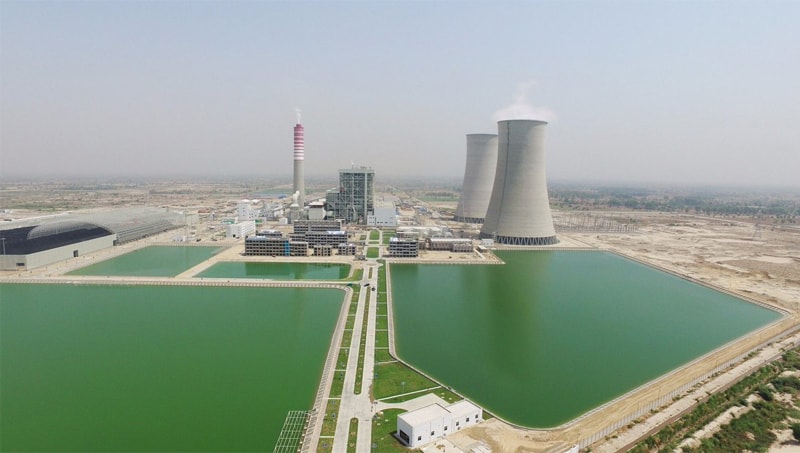Energy production through nuclear power plants is safer, cheaper, effective and supports self-reliance
DR ZAFAR KHAN EXECUTIVE DIRECTOR BTTN (QUETTA)
Ever since the Russia-Ukraine war, global warming and the gradual depletion of non-renewable sources of energy such as oil, gas and coal are compelling nation-states including most of the European states to reconsider their energy policies. Many of them are opting for energy production through nuclear power plants, which is not only safer, cheaper and effective, but also supports self-reliance.
Given this backdrop, it is imperative that Pakistan too turns its focus on producing energy through its nuclear power plants (NPPs) such as Karachi Nuclear Power Plants (having the capacity of 1100MW each), the Chasma-1 (325MW), the Chasma-2 (325MW), the Chasma-3 (350MW), and the Chasma-4 (350MW) under the International Atomic Energy Agency (IAEA) safeguards. Since their inception, all of these NPPs have not only been producing safer, reliable, and cheaper electricity but more importantly, they have been timely and effectively contributing to the country’s fragile economy by saving billions of US dollars compared to other sources for energy production.
According to reliable and credible sources, Pakistan through its six NPPs has saved $3.035 billion with reference to oil, $2.207 billion with reference to RLNG, and $1.586 billion with reference to imported coal during the fiscal year 2022. The same amount of electricity produced by NPPs when generated by other sources of energy production costs some $3billion extra in fuel charges alone, not including the amount of expenses on other related ingredients, further affecting the broader parameters of Pakistan’s economy.
Energy plays a significant role in running the economic engine of a country. The more energy Pakistan produces and effectively uses, the more it protects its economy from fragility and the more it has the chances to prosper. Thus, with national awareness and consistent functioning of Pakistan’s NPPs, the country can surely save more money and energy. Recently, it has been reported that nuclear energy became Pakistan’s top source of power generation for the first time, generating 27.15% (i.e. 2,284.8GWh) at Rs1.073/unit. Carbon-based energy production is not only getting extremely expensive for many external and internal factors, but they are also not environmentally friendly and play a huge part in exacerbating the consequences of global warming.
Scientists argue that global warming is already occurring and it has surprisingly increased the earth’s temperature by 2 degrees Fahrenheit in total since 1880. Many scientists believe that the earth’s temperature will continue to increase to 2.7 degrees Fahrenheit by 2050 with far reaching consequences such as the loss of sea ice, melting glaciers and ice-sheets, the rise of sea level and intense heat waves. Pakistan’s contribution to global warming may increase if we continue to prioritise other sources of power production while downgrading nuclear energy. The current snagging of the forthcoming Chasma-5 nuclear power plant is not a viable decision by the Finance Ministry. The ministry needs to reconsider the cost and the benefits closely before carefully before undertaking concrete decisions on energy production.
That being said, as the world moves away from carbon-based sources and towards nuclear energy, it is imperative for Pakistan to be proactive by undertaking stringent measures in order to successfully complete the Chasma-5 nuclear power plant including that of K-4 and K-5 in Karachi and M-1 and M-2 in Muzaffargarh. Arguably, these NPPs not only increase the country’s electricity production, but will also help save billions of US dollars that Pakistan is currently spending for running other sources of energy. There is a need for both educating the government on such feasible, reliable and cheaper options, and also increasing awareness amongst the common masses.
Notably, during earthquakes in Japan in 1995, 2004, 2005, 2007, 2009, and 2011, as well as a devastating earthquake in Taiwan in 1999, nuclear power plants automatically shut down and ensured safety. To keep up with emerging challenges, the IAEA continually assesses Pakistan’s national nuclear security regime in accordance with the country’s international obligations. Despite strict adherence to international standards, Pakistan is concerned over the discriminatory decisions by the Nuclear Supplier Group (NSG) to grant a waiver to India despite the country not being a signatory to the Nuclear Non-proliferation Treaty (NPT). However, a strong indigenous culture of nuclear security has been cultivated over time, reinforcing and sustaining the robustness of Pakistan’s nuclear security regime. Being a member of IAEA’s 35-member Board of Governor seven though it remains outside the NPT Pakistan is closely working with the IAEA and receiving technical cooperation from the agency.
Conclusion
Nuclear energy is a viable option for Pakistan to pursue more vociferously. Increasing nuclear energy capacity and its use can save Pakistan billions in foreign exchange reserves and reduce electricity load shedding. Furthermore, by reducing its reliance on imported fuels, Pakistan can improve its balance of payments and contribute to its overall economic stability. Investing in domestically generated nuclear power has the potential to save on import costs, which can conserve the country’s foreign exchange reserves and promote economic growth in the long term.


